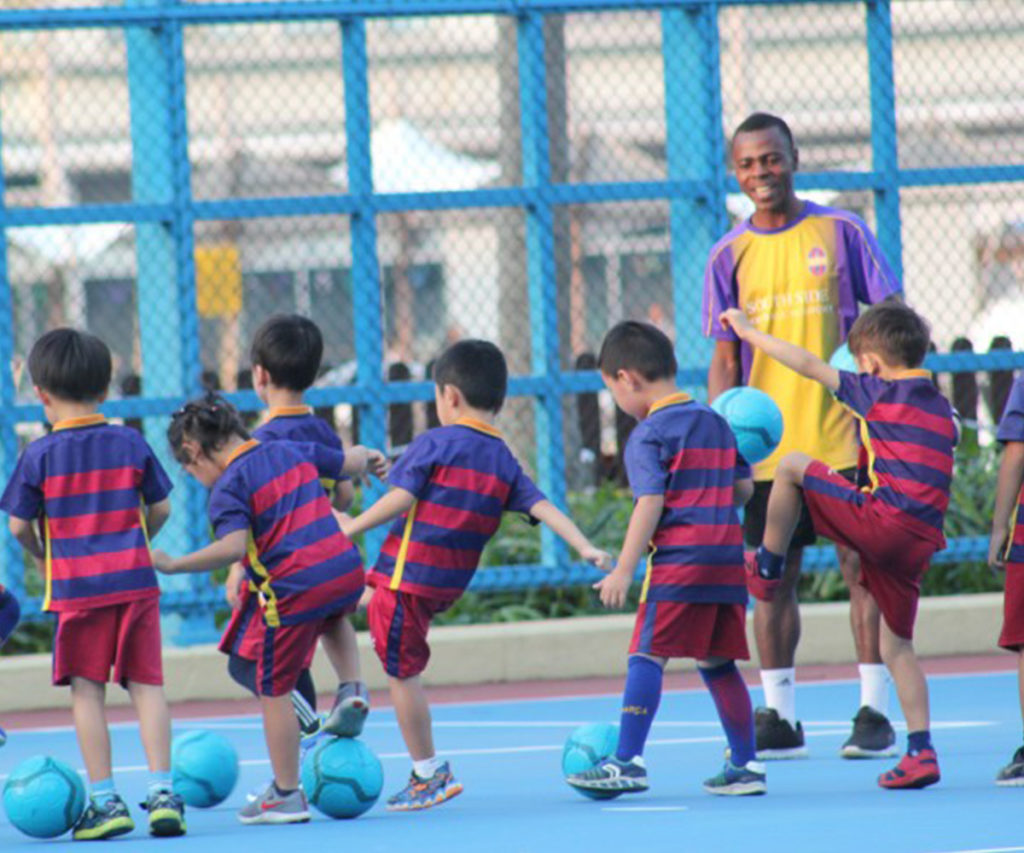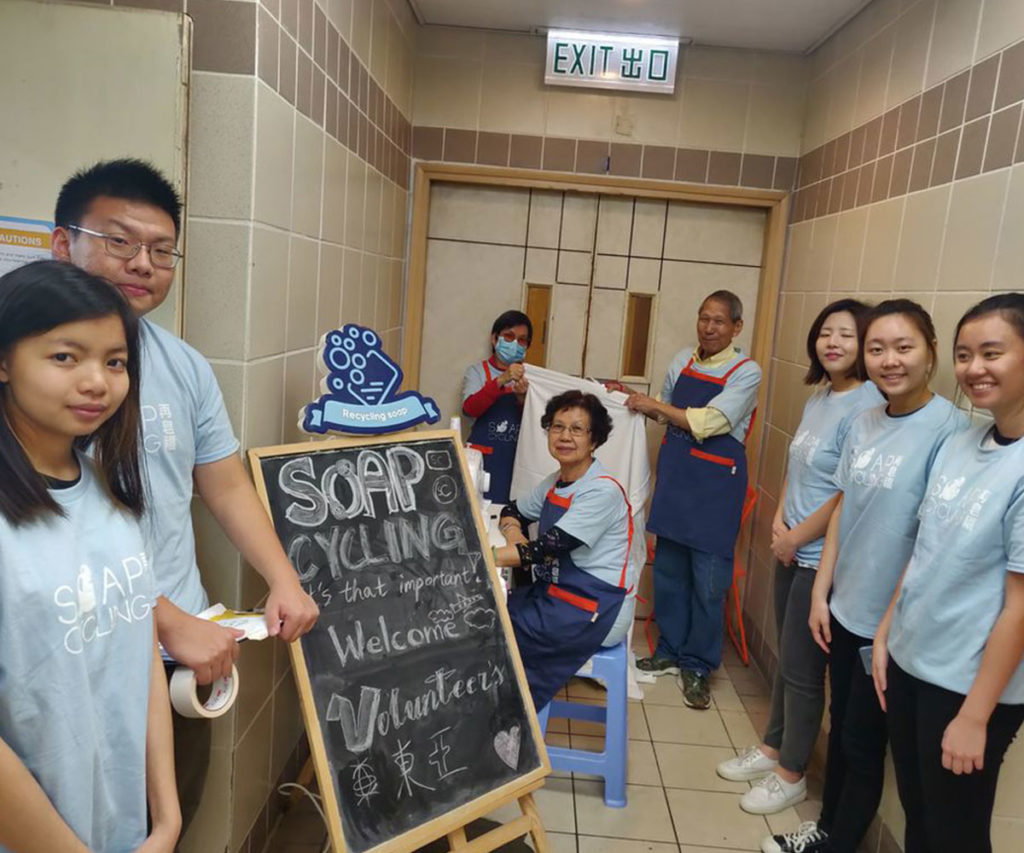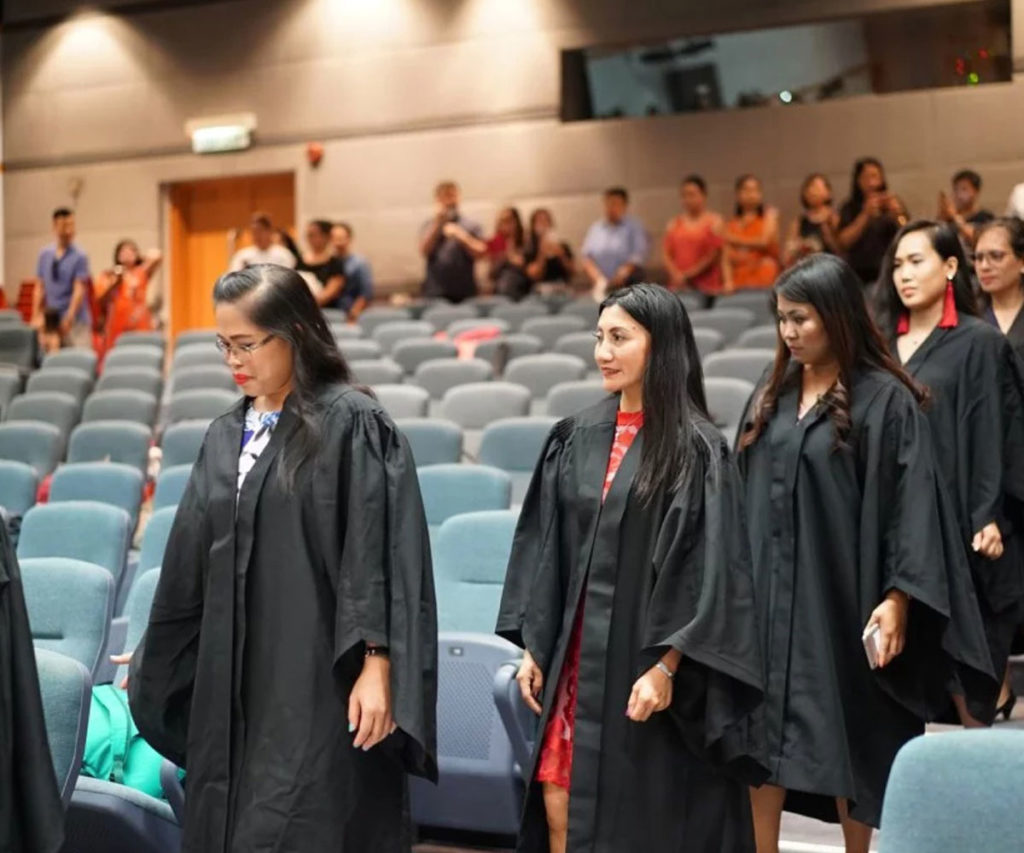A recent research by the sociology department at the Hong Kong Shue Yan University found that 80% of secondary school students in Hong Kong are unsure about their life path ahead. The urgency to help youth identify their life goals, so that they can be motivated to improve themselves and lead a meaningful life, cannot be stressed enough, according to Professor Cheung Yuet-wah, the lead researcher.
Understandably, the current generation of youth faces multiple challenges, from adapting to a new way of learning during the COVID-19 pandemic and the existential crisis brought about by climate change, to rising inequalities and the disruption of personal and professional lives as a result of the advent of AI and other technological disruptions.
However, the picture isn’t so bleak. According to PwC’s latest Global Workforce Hopes and Fears Survey of 54,000 workers in 46 countries and territories, workers aged 18-26 years believe that their employer will help them acquire the skills they need for the future. For example, over three in five workers in this age group believe that their employer will offer them the opportunity to develop critical thinking (65%), collaboration (63%), and analytical skills (61%).
This corroborates our observation of the youth we work with at Foundation for Shared Impact (FSI), including our student interns at Impact Lab Course and Community Business Internship Program. We can see that this generation of youth, albeit uncertain about what the future may bring, is nonetheless driven to carve their own path to build a future they want to see. This is why youth empowerment is a core value built into our programs at FSI.
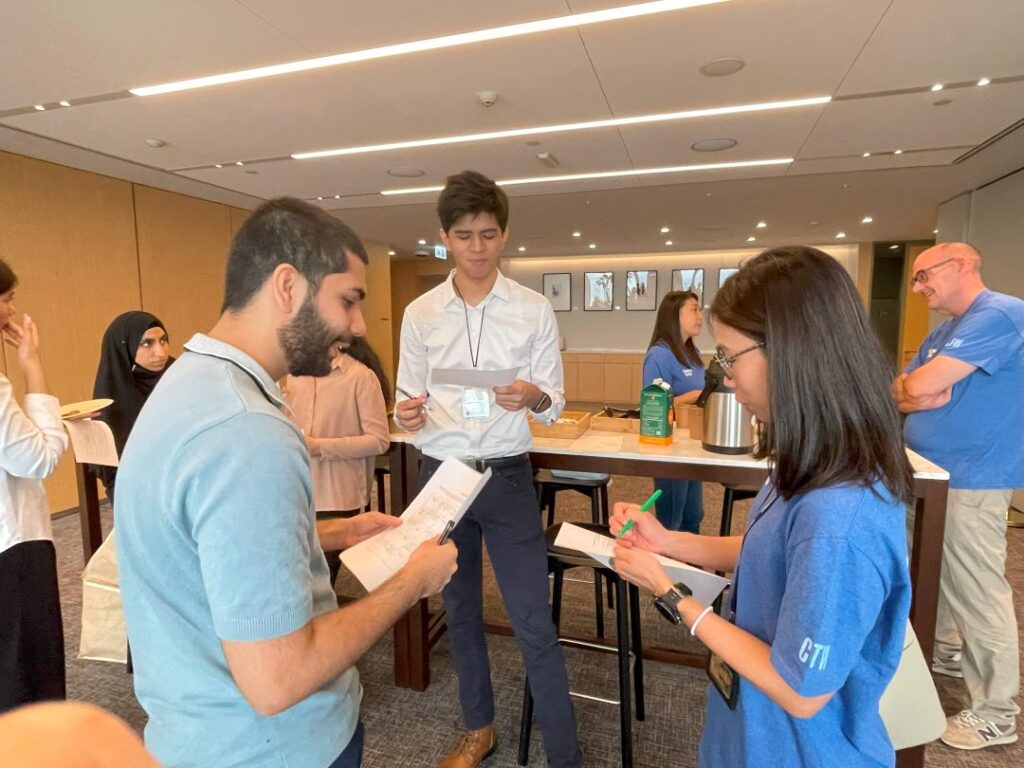
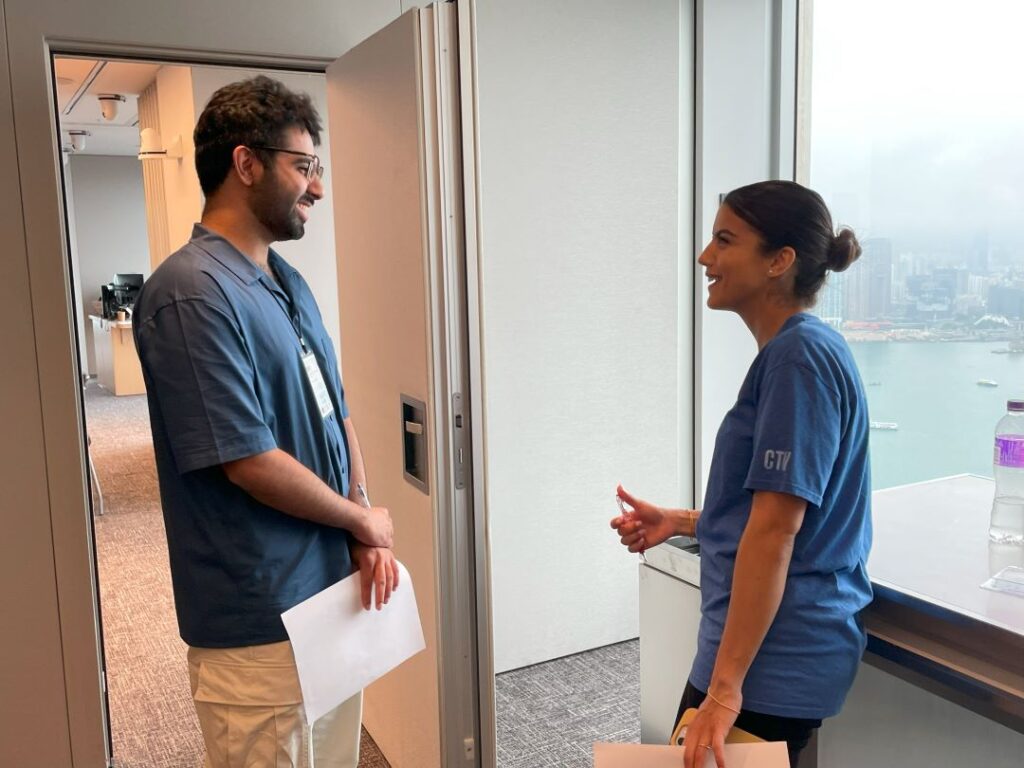
Cross-sector Collaboration to Empower Youth
On 8 June 2024, FSI collaborated with our long-time corporate partner, Goldman Sachs Community TeamWorks, to host an Impact Jam to help ethnically diverse youth plan and prepare for their career pathway ahead.
At Goldman Sachs’s Hong Kong office, we kicked off the Impact Jam session with an open discussion, where the youth talked about the challenges they faced in career planning and Goldman Sachs employees offered bespoke advice.
Hasnaa Akiod, a Vice President in the Goldman Sachs Executive Office, offered valuable advice to Ananya Thakur, a year-one student studying finance at the City University of Hong Kong, while acknowledging the challenge of differentiating oneself early on in one’s career: “Sometimes it’s just about being motivated and exploring different opportunities. Ananya was interested in venture capital, but she ended up taking an unpaid internship just to show her motivation and get the right connection. That’s a good way of looking at things. Always reach out even if they reject you. Just send that email. It could actually open up other doors for you. Just say yes – you have nothing to lose.”
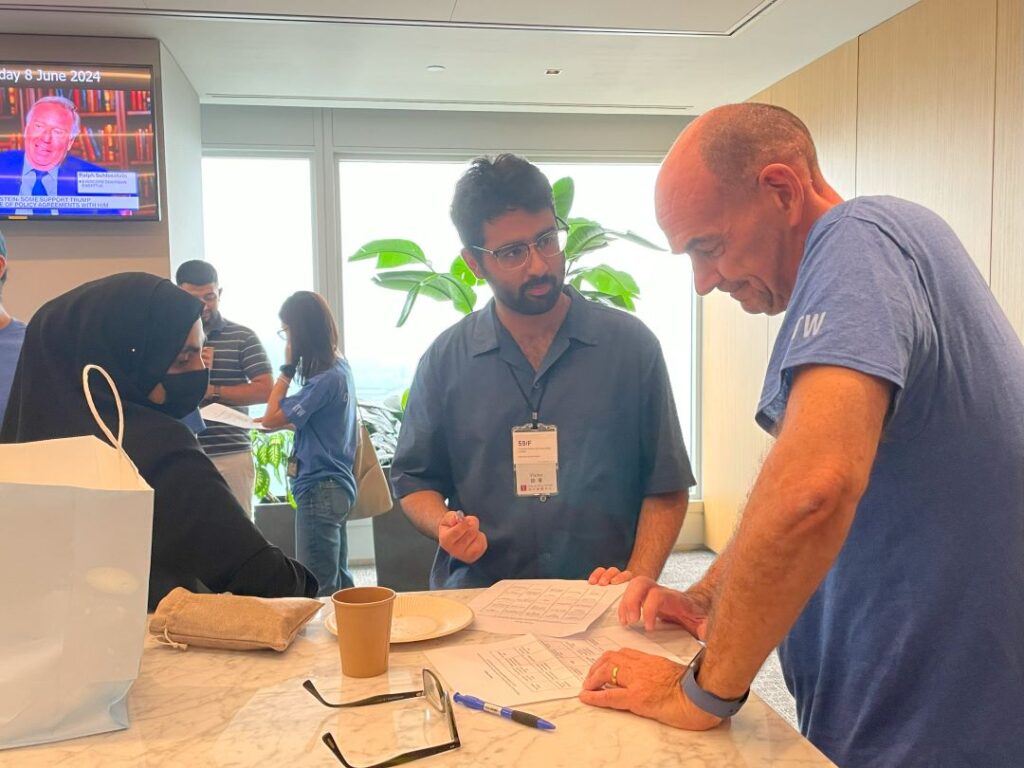
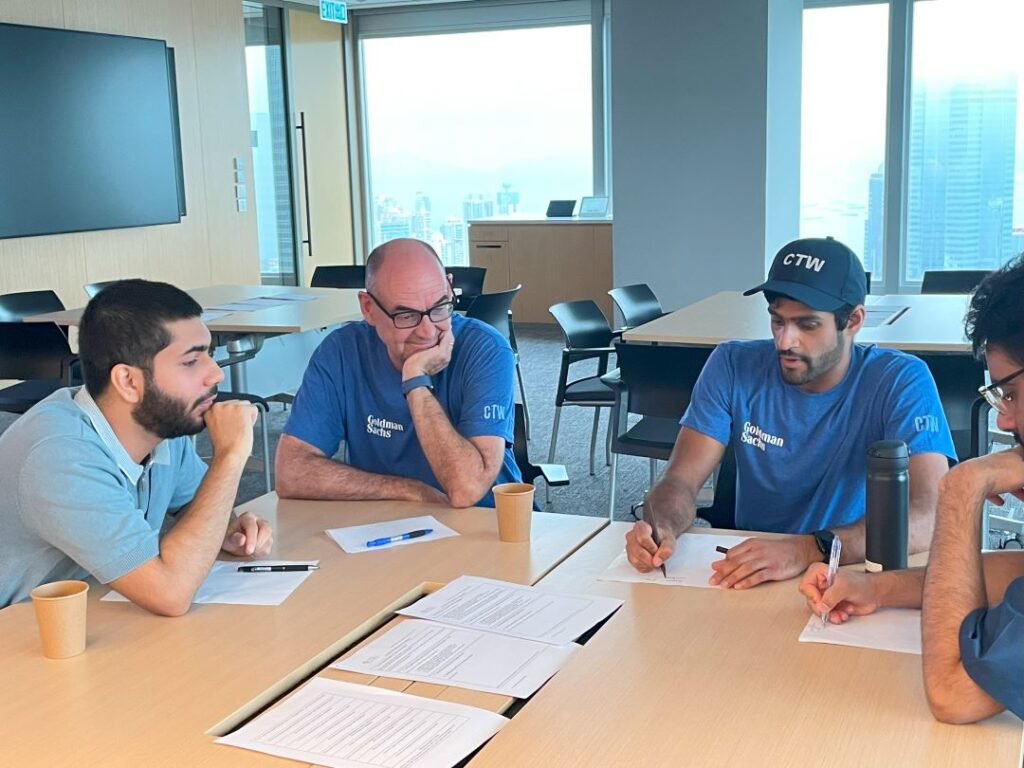
Said Abbas Furqan, a year-one student studying business administration at The University of Hong Kong: “Because I’m not really sure about what I want to do, we (together with Goldman Sachs employees, Philip May and Avinash Sujanani) went in-depth and talked about doing whatever I can, exploring what I like and what I don’t want to do. They advised me to keep an open mind and not close a certain sector up, because even the banking industry has a lot of different roles that I might not expect or know existed. We also deliberated on a philosophical question, which is, ‘If you were to start over, what would you do?’”
As an ethnically diverse individual born and raised in Hong Kong, Adnan Riaz, FSI’s Community Business Support Program Assistant, also shared his personal story about grappling with educational inadequacies in learning Chinese and the cultural barriers he encountered when seeking employment. “The Chinese language curriculum in my secondary school wasn’t the best fit for me – it was super easy and it taught things that I had already learned in primary school. It wasn’t until after I had completed Form 6, when I applied for jobs in the retail industry, that it really hit me: my Chinese language skill was poor compared to other youth my age. I also realized that even if I speak Chinese, I may not be hired due to the local Chinese people’s perception of non-Chinese people’s Chinese language skills.”
But Adnan, affectionately known by his FSI team members as “Dani”, added that is no excuse to stop trying. “You will face a lot of hurdles for sure, especially after graduating from university. You will start feeling a little bit lonely because you’re not engaging with your friends anymore: your friends are all applying for different types of jobs, some are moving out, some are not in Hong Kong. So you will have to navigate this pathway by yourself. I highly recommend that you expand your social network and share your career plans with your family members. At the moment, I have multiple career goals. I’m planning to pursue my degree in clinical psychology and hopefully, through that, I can help young people in Hong Kong.”
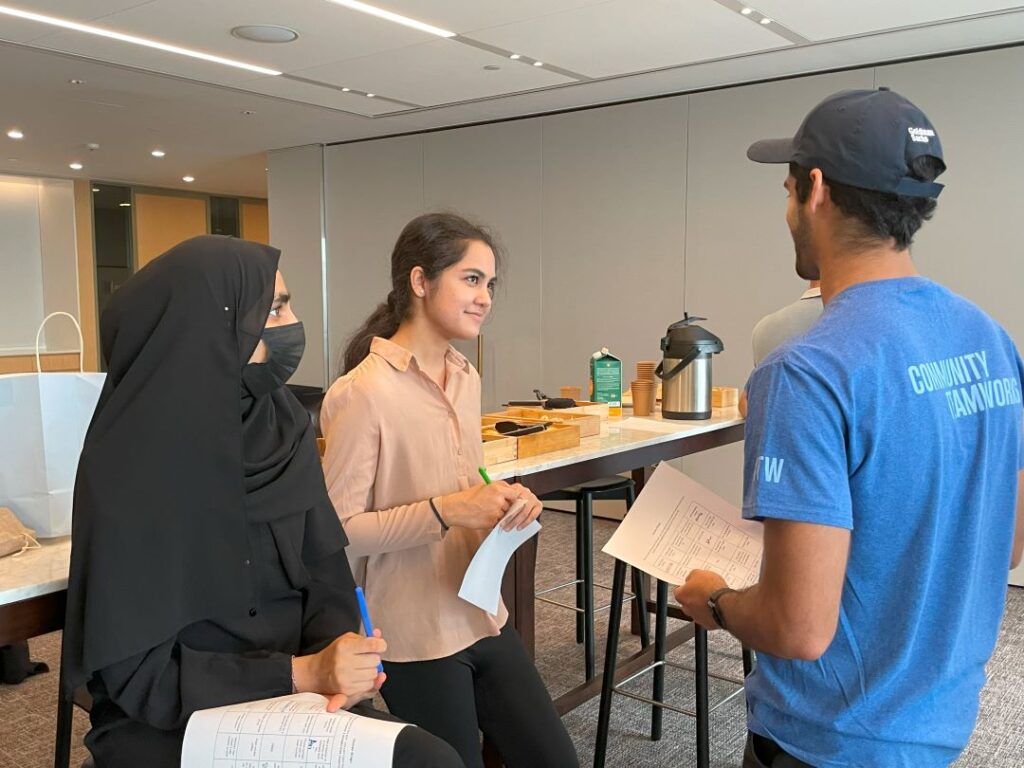
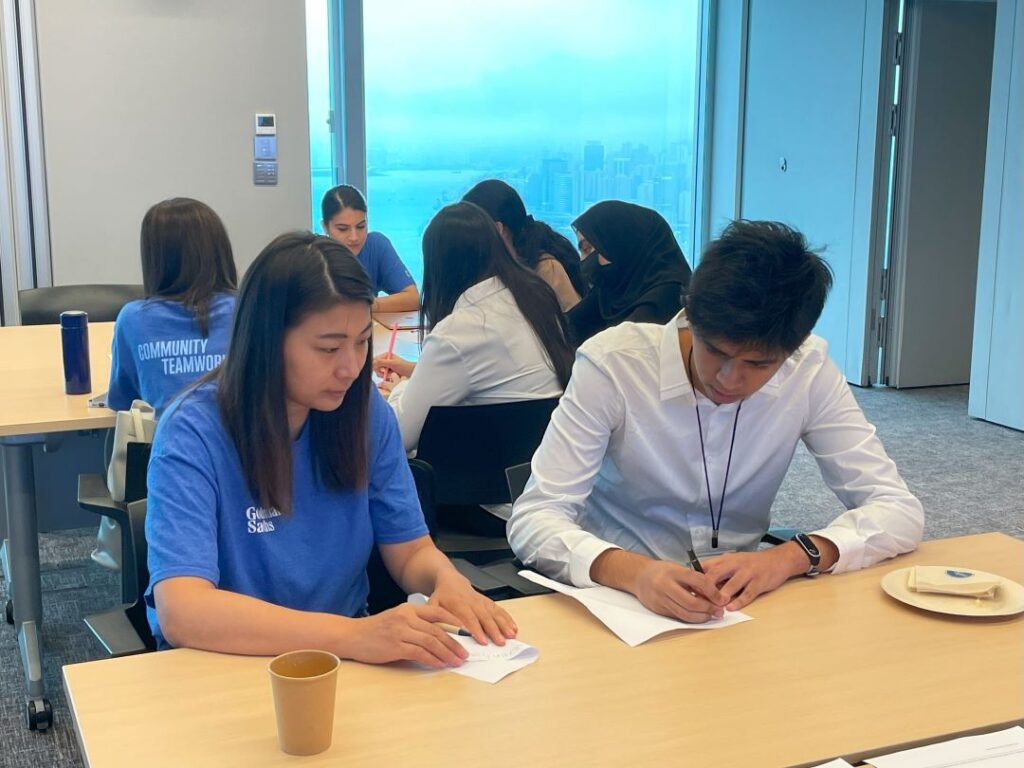
Goldman Sachs Employees Empowering Youth with Stories of Their Personal Career Journeys
In the panel discussion that followed, we invited Goldman Sachs employees to share their insights and experiences on their first job hunt, the story of their careers, the challenges and opportunities they encountered when transitioning from school to work, and how university youth can prepare for their first working experience.
“I studied accounting at university, but I’m not an accountant anymore,” said Sonia Ho, a compliance specialist working at Goldman Sachs for 14 years. “What you study at university doesn’t necessarily define your career, so just keep an open mind.”
The advice was echoed by Wenhui Zhao, Goldman Sachs Vice President in Equities Management & Strategy in Global Banking & Markets Division. “I was studying my master’s degree in electronic engineering and I didn’t know much about the banking industry at that time. I learned that there are actually various roles in the investment bank including technical roles doing software development.”
“I started as project manager and then moved onto my current role, where I am involved in various analysis, initiatives, and strategies for business in the global markets. It’s an interesting role as I get exposure to a broad range of businesses while working with different teams. What you study may not be something you will end up doing.”
Wenhui also stressed the importance of resilience and perseverance: “I only started looking for an internship when I was studying my master’s degree in Hong Kong. I was struggling as I didn’t have any working experience. I started understanding the opportunities in banking industry after talking with school friends and alumni. So be proactive to learn what are the types of roles available by talking to people, whether your mentors, your school’s alumni, or friends, attending the recruitment talks and spending time to do your research. Even if you don’t have much working experience, like I did, don’t think that there are no opportunities. Stay resilient and doors will open for you.”
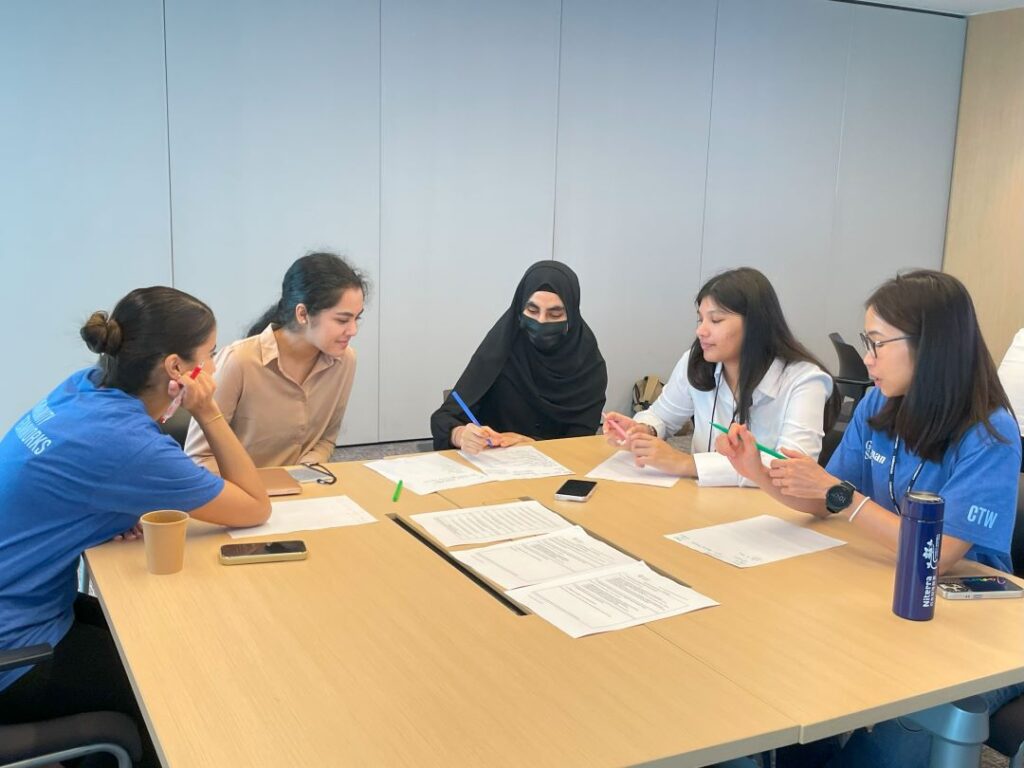
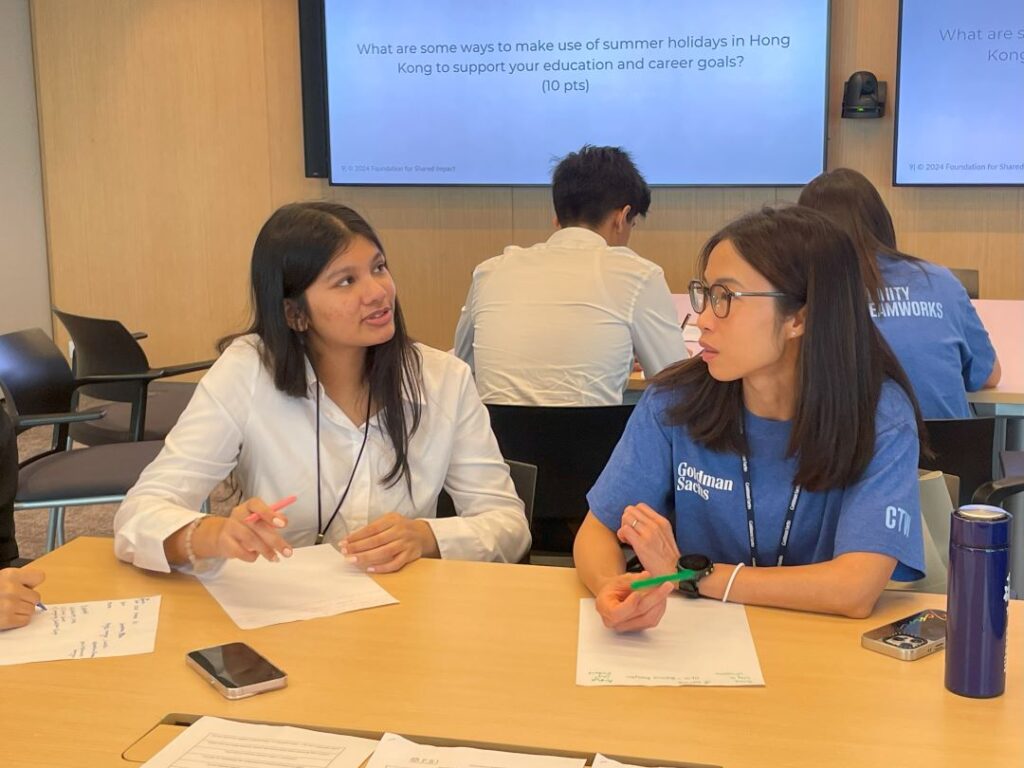
On the school-to-work transition, Avinash Sujanani, Goldman Sachs Senior Analyst in Client Technical Solutions in the Global Markets Division, highlighted the importance of networking. “COVID happened when I graduated in 2020. I already had a job lined up in the UK but I was told that I would have to start in November because of the pandemic. I decided that I wasn’t going to do nothing. So I came to Hong Kong, found a private capital advisory role through connections, which eventually led me to my current role at Goldman Sachs. To get a headstart, do internships to get work experience – it’s going to prepare you for the real world. And networking is so important as it opens up so many doors for you.”
However, it is just as important to dedicate time to personal development, not just career development. Said Dani to the youth: “You’re at an age where you have the most energy in life. If you look after yourself well, you could live past 75 and beyond. So start identifying the things that energize you.
“During the COVID-19 pandemic, I made the conscious decision to leave a social circle of bad influence. I became interested in social impact, got into volunteering, and started Project Empowerment (PEME) with some friends to empower ethnically diverse students through mentorship, career guidance, and mental health awareness. I learned event planning and project management skills by volunteering at PEME and simultaneously created learning opportunities for my peers via PEME. On the side, I also write about social issues and participate in community activities because they energize me. I think, today, I’m in a position where all of the knowledge that I gained and all the voluntary work that I did has qualified me for not just the role at FSI, but also a community leader in Hong Kong. So don’t just spend time worrying about what’s next in your career, try to figure out what you’re really passionate about.”
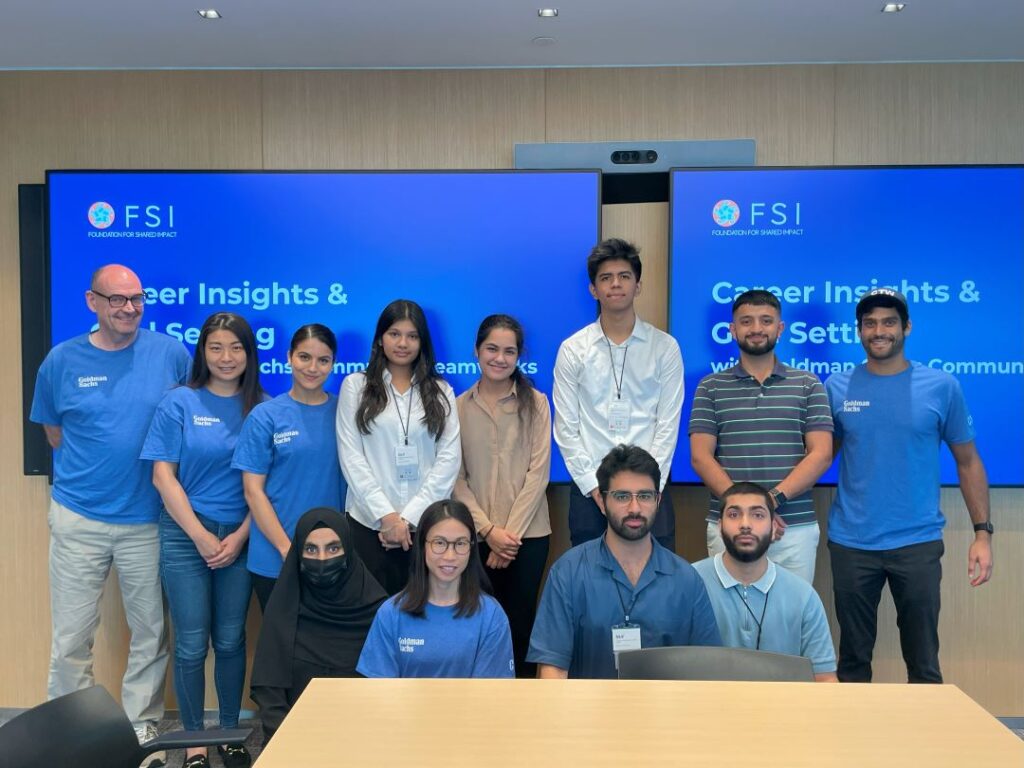
A Mutually Beneficial Impact Jam
The last activity at the Impact Jam was a one-on-one mentoring session, where the six Goldman Sachs volunteers were paired up with the five youth to help them develop and enhance their one-minute self-introduction pitch, prepare for job interviews, review and recommend improvements to resumes and LinkedIn profiles, and set SMART (Specific, Measurable, Attainable, Relevant, Time-based) goals for their career planning journey.
“It was a really great session because we got to connect with multiple students from diverse backgrounds,” said Hasnaa Akiod after the Impact Jam. “They’re also motivated, doing more than we used to do back then. My advice to the youth would be to take risks and say yes to opportunities, get out of your comfort zone, and just be motivated and curious. That will go a long way for sure.”
Bibi Walida, a year-one student studying business analytics at The University of Hong Kong, found the Impact Jam helpful in multiple ways. “I think the career workshop was really good because it helped me learn more about how I can land my first job and how to transition from university to my future workplace. My LinkedIn profile also got better because of the skills I learned from my mentor, and knowing what recruiters could be looking for when they look at my LinkedIn profile and CV. My biggest takeaway is knowing that even within the finance industry, there are many sectors, and that helps me to see the bigger picture.”
Bibi’s view was shared by Ananya Thakur, a year-one student studying finance at the City University of Hong Kong. “I always thought there was this one straight path to getting a job: You get internships with corporate banks and commercial banks during university, and then that’s how you get a job in an investment bank. But speaking to the mentors today, I realized that they come from different backgrounds, and there are a lot of ways to explore what is meant for me. It makes me realize that I don’t have to stick to the same thing for the next 20 years of my life, that I can continue exploring and figure out what I like and what I don’t like.”
Want to sponsor an Impact Jam with FSI to engage your talent, achieve CSR and ESG goals, and give back to your community? Get in touch with us at info@shared-impact.com!

